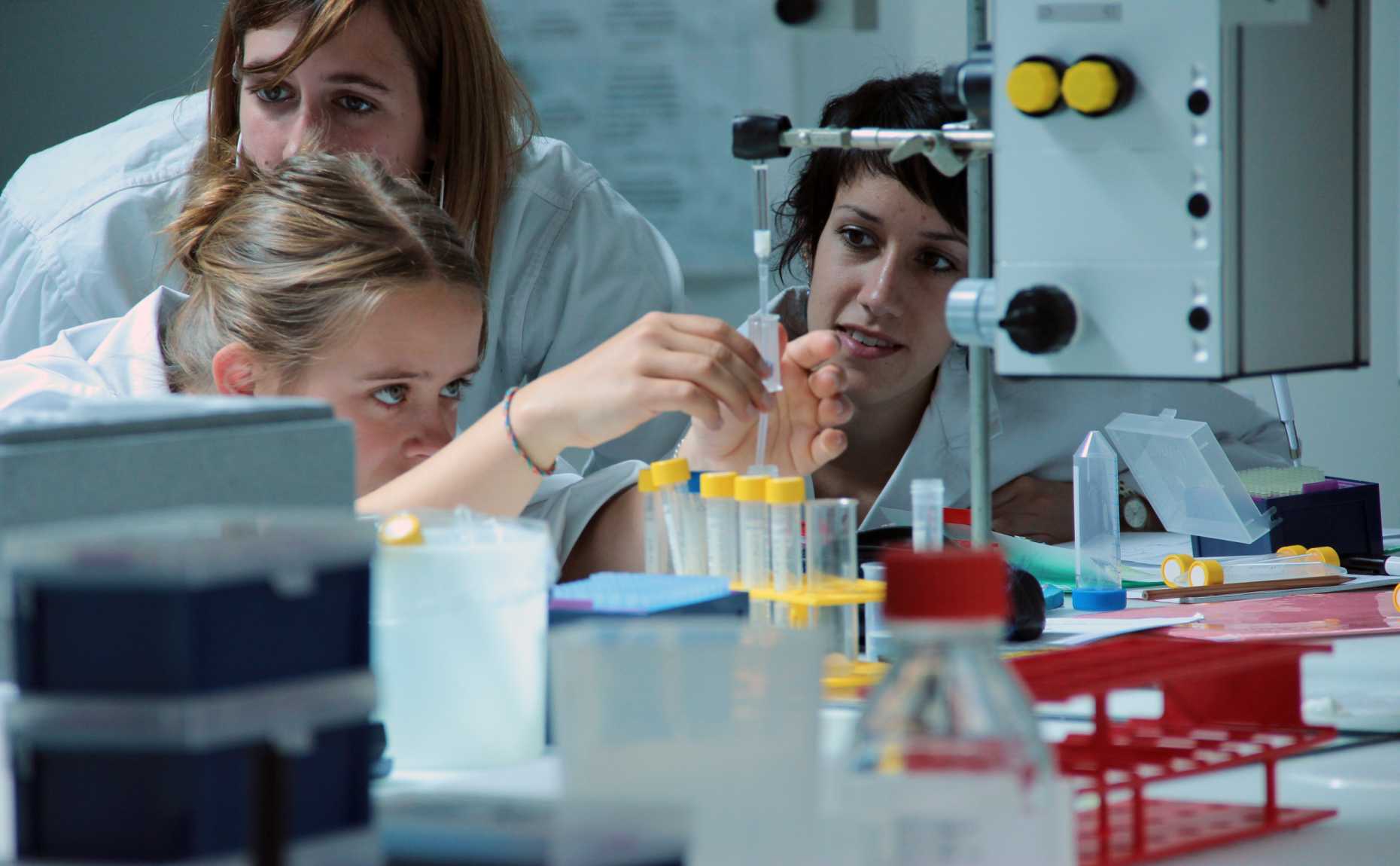Discoveries on the Hönggerberg
- Laboratory for Solid State Physics (LFKP)
- D-BIOL
- D-BIOL
For the first time three units of ETH Zurich Hönggerberg jointly organised a tour for 40 students of the Kallipolis Lyceum Piraeus and their teachers. This gave the guests wonderful insight into the research location ETH Hönggerberg, with an introduction to ETH Zurich followed by guided tours through the Departments of Biology and Physics.
Overview of ETH Zurich
Only if researchers have sufficient capacity, such tailored guided tours can be organized. On 14 December 2018 Master student Hannes Heller gave the guests an overview of ETH Zurich on behalf of the central unit ETH Services. After half an hour some of the 40 youngsters still asked questions — a sign that his talk was well received by the target audience. The guests were already interested in practical points: How expensive is it to study at ETH Zurich and how can one can afford life in Zurich. But also how different subjects can be combined. Most of the guests spoke good English and could easily follow the explanations.

Journey to individual molecules
Nonetheless, some guests were delighted to be guided through the laboratory at the Institute of Molecular Health Sciences in the Department of Biology by the biologist Dr Irini Vgenopoulou in their mother tongue. One teacher pointed out that she could not visit a biology laboratory at a university in Greece with a class of interested students, so she particularly appreciated this unique opportunity at ETH Zurich. To see how the researchers analysed cell populations in the laboratory using flow cytometry was also a great experience for her.

Smaller and smaller down to the atom
Journey to the single atom: doctoral student Giorgio Nicoli visualizes the order of magnitude in which work is done in the laboratory for solid state physics.
The laboratories produce smallest structures under extreme conditions: In a high vacuum and at the lowest temperatures close to absolute zero. Under such conditions, high-quality materials are investigated, which are produced in the neighbouring laboratory, for example by the physicist Dr Christian Reichl.
Such basic research is unthinkable using commercially available equipment, which is why each precision-research apparatus in the Department of Physics is built individually. It is also the close cooperation between the research groups that makes possible the complex experiments on the way to new quantum computers.
In these labs a mosquito becomes an elephant
Christian Reichl reported vividly on solid-state physics research in his laboratory. Not without pride he explained that this laboratory is among the three world leaders that can produce the absolutely purest materials for cutting-edge research. He explained to the guests what a great deal of trouble a tiny mosquito can cause in this research facility. Under this circumstances it is astonishing that the researchers provide insight into these unique high-tech facilities.

Studying at ETH Zurich?
While some parents in Greece may have been worried about their children who have travelled to cold Switzerland, the latter were already busy with plans for their future. Enriched with impressions and ideas for their future studies, some will maybe after their trip present their parents thoughts about studying in Switzerland.